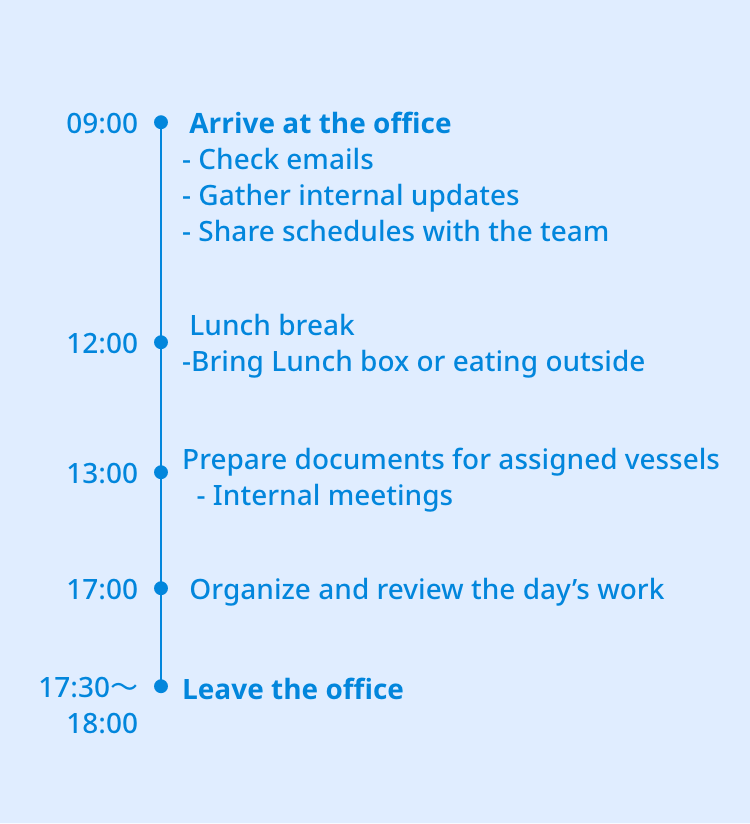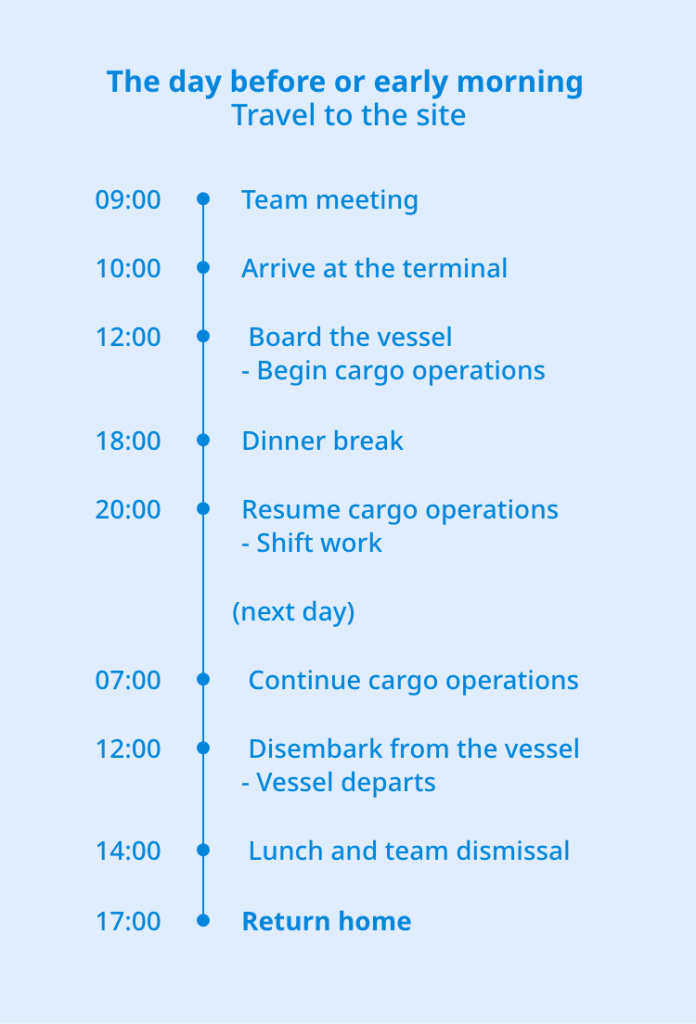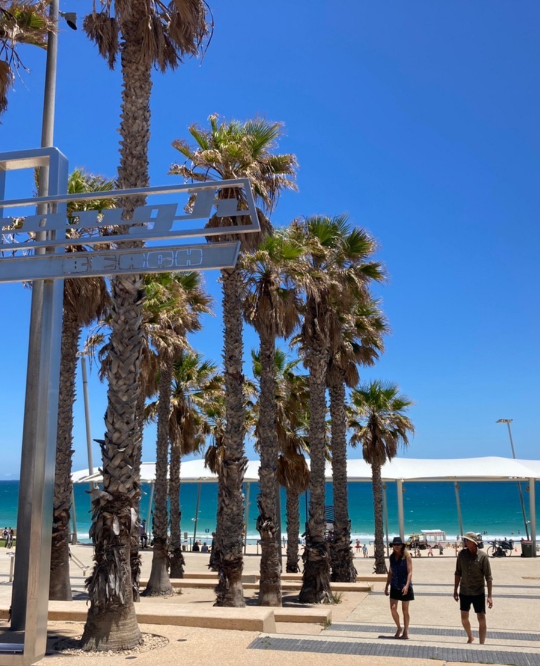What makes the job rewarding, interesting, and challenging?
Energy is a vital resource prioritized by nations around the world and essential to people’s daily lives.
Electricity and gas—key components of social infrastructure—are largely supported by LNG (liquefied natural gas). The energy landscape is shaped by, and in turn shapes, international political and economic conditions.
As a result, it is essential to maintain a broad and global perspective—not only on the energy policies of individual countries and the activities of energy companies, but also on the wider geopolitical and economic context.

We feel a strong sense of purpose and responsibility in being part of the energy industry.
As an island nation, Japan relies on ports for nearly all of its international logistics.
We take pride in working with LNG carriers and supporting the lifeline of society on the front lines.
LNG is a hazardous material.To ensure that cargo operations are carried out safely and reliably, a wide range of checks and preparations must be completed even before the vessel arrives at terminal. We serve as a liaison between the ship and the receiving terminal, maintaining flexible communication, preparing necessary documentation, and thoroughly confirming and understanding a large amount of information.
On the day of cargo operations, we meet with both ship and terminal personnel on-site and carry out the work together. When the operation—which usually takes about two days and one night—is completed successfully, we feel a great sense of accomplishment together with everyone involved.
On the day of cargo operations, we meet with both ship and terminal personnel on-site and carry out the work together. When the operation—which usually takes about two days—is completed successfully, we feel a great sense of accomplishment together with everyone involved.
Sometimes, things don’t go as planned at the site, and we face unexpected issues.
Weather and sea conditions can also affect the schedule, occasionally causing changes to the vessel’s arrival date. While these situations can be challenging, they’re also when we come together to find solutions, coordinate with others, and prepare alternative plans. It’s in these moments that we’re reminded of how dynamic and ever-changing the field is—and that’s exactly what makes working on-site so interesting and rewarding.
Why I’m glad I joined JESCO
Working on-site gives us the opportunity to interact with commercial vessels operating on a global scale. We meet crew members from various countries and regions, allowing us to experience different cultures and customs firsthand. Through business trips to ports both in Japan and abroad, we also get to discover local specialties and broaden our perspectives—all while enjoying the experience.
Although we’re often close to the field, we spend more than half of each month doing office work and sales activities. This balance between fieldwork and desk work keeps our days fresh and dynamic, and we see it as a major advantage in terms of both our professional and personal lives.
Daily schedule
<Office Work Schedule>
I usually arrive at the office a little after 9 a.m. and start by checking emails and work reports from the previous day. Then I organize my tasks for the day. This includes reviewing the schedule and cargo handling plans for the vessels I’m in charge of, sharing past cases and issues, and coordinating with both ship and terminal sides to ensure safe operations.
As just one example, my mornings are often spent coordinating with related companies and sharing information with terminals, shipping companies, and agents.
In the afternoon, I focus on organizing data, writing reports, and preparing for upcoming assignments. Toward the end of the day, I review the next day’s tasks and usually leave the office around 6 p.m.
When multiple projects or business trips overlap and preparation time is limited, I sometimes work overtime—but this is generally how my schedule looks.
<LNG Loading Operation Schedule>
I head to the site according to the LNG vessel’s arrival schedule. Sometimes this means working early in the morning or late at night, so managing my health and preparing in advance are essential.
I oversee key stages such as mooring, arm connection, purging, cooling, and the start of cargo operations. If any issues arise, we immediately coordinate with all parties involved to resolve them. Before and after the operation, we share information and confirm mutual understanding between the ship and the terminal.
There are many moments during the operation when I need to stay fully focused, and I always remain alert on-site.
After the cargo handling is complete, I compile a report and share it so that the experience can be applied to future operations.
Depending on the location, I sometimes catch a glimpse of the departing vessel from the train window on my way home—a moment that always leaves me with a deep sense of reflection.
A message to future members
By gaining specialized knowledge of LNG and LNG carriers, you’ll also gain insight into the broader trends of the energy industry. Through repeated, flexible communication in both Japanese and English, you’ll experience the rewarding process of building operations on-site.
The field offers the unique opportunity to turn various challenges and difficulties into valuable experience, while developing shared know-how within the company and among stakeholders.
Even at this very moment, there are people working to deliver energy to society—and LNG carriers sailing across vast oceans.
JESCO, a small team of professionals with diverse experience, continues to contribute to a brighter and more stable future for society.











